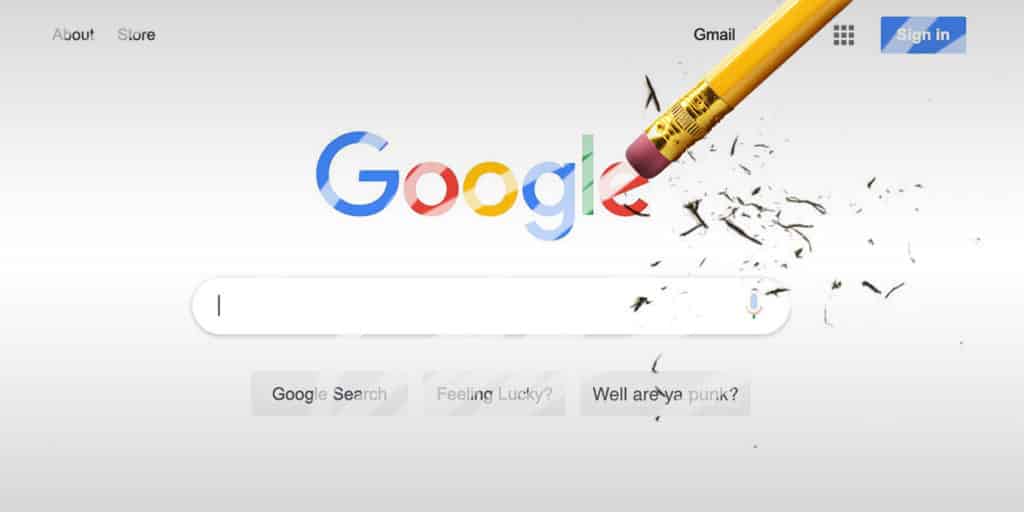
Google and the right to be forgotten, via eff.org
Travis was a top graduate. He had numerous job offers, and he accepted a job with his top choice. All that remained prior to starting what looked like a promising career was a background check. Travis was confident that the background check would go well. It didn’t.
As a freshman, Travis had posted on social media that he liked a heavy metal song. The song lyrics were racist and misogynistic. Travis’ future employer had hired a firm to do a background check. The firm prided itself in doing a thorough review of prospective employees’ social media. They flagged Travis’ like of the song as a warning of how Travis thought about African-Americans and women. Travis’ prospective employer withdrew its offer.
When Travis asked about his failed background check, he was astonished. He couldn’t even remember liking the song. Nothing else in his background or behavior was indicative of the concerns expressed by the company doing the background check. Travis tried to reverse the rejection but with no success.
Travis ended up unable to secure another position matching his career interests. His hoped-for career was dead-ended before it began.
Was justice done? How might we view a situation like this when society has become more sensitive to inappropriate personal behavior? How much weight should an inappropriate action carry? How long should it carry that weight? How might one inappropriate action be a harbinger of future behavioral issues? How do we judge the severity of past actions to determine if they should be used to hold a person accountable today?
What about a person whose career is noted for good works but has in his or her history actions that are considered inappropriate today? How do we judge these people, especially in light of changing social and cultural standards? How should we think about the impact of technology–and the capacity of social media to save information about our lives? How should we think about technology’s role in blurring the lines between what is private and what is public? How many of us would meet today’s standards if the actions of our youth were recorded in the same way as the actions of digital natives have been?
Just imagine how we might balance forgiveness and accountability for a person’s inappropriate actions. Just imagine if we had the moral equivalent of a statute of limitations for past actions. Just imagine how we might balance sensitivity about past actions with a sense of how people grow and improve themselves. Finally, what if we judged a person’s life story in its entirety rather than by an isolated unfortunate incident?
* * *
“Reputation is only a candle; of wavering and uncertain flames, and easily blown out, but it is the light by which the world looks for and finds merit.” — James Russell Lowell (poet)
This is part of our “Just Imagine” series of occasional posts, inviting you to join us in imagining positive possibilities for a citizen-centered democracy.

